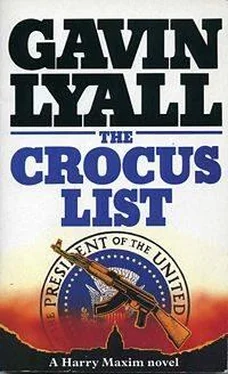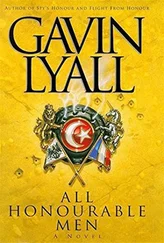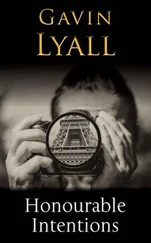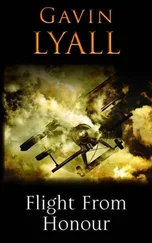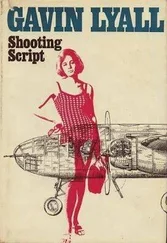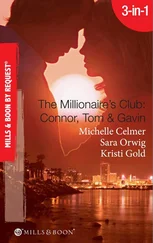"They're certainly tearing things down and putting them up at the moment. Nothing more than that?"
"It sounds a bit daft, but… it looks like the capital of America. Like they'd want it to look."
"Yes-the Founding Fathers, and L'Enfant, did a pretty good job." She stopped, looking up at a rocket: a towering metal redwood that had never flown because the ones that flew were junk scattered across the Gulf of Mexico. "They do things whole-heartedly, over here. Even if it's some idea like building a restaurant like a ship. They make itlook like a ship, with waiters like pirates singing shanties into your clam chowder. We'd get scared half the way through and back off and just stick a few ship pictures round the walls. It's good to see you again, old sport, although the reason could be more auspicious. I wondered if it was you when we first got news of the Abbey-no insult, just that some people get picked for some jobs. How's George liking life back at Mo D? Not drinking too much more than too much?"
"He's ticking over. It's nice to see you, too." Perhaps it was the estrangement of Washington, perhaps that he hadn't expected Agnes at the Smithsonian, but it had been a surprising thrill to see the familiar smile in the crowd. Although not all that familiar: her oval face was leaner now, her light ginger hair cut shorter and more clearly styled. It might be something about blending with the efficient American women he had seen around the city, or it might be a feeling of exile. She smoked more than she had done before, too, lighting a cigarette with real hunger when they came out into the sunlight.
"Well, you'll be seeing more of me. You know I'm debriefing you this afternoon? Maybe you'll feel like a drink after that. I'd like to hear what you've been up to."
"Certainly. Happy to." But there was a flat wariness in his voice, and she didn't push it. But I was right about him being up to something, she thought.
The 'Secret Service' in America began, and continues, as a branch of the Treasury hunting down counterfeiters, largely by undercover means. Since it was the only nationwide law enforcement agency when Mc Kinleygot killed in 1901-making three presidential assassinations in forty years-it was the only group that could easily take on the job of body guarding future presidents. So it was not to the White House but the Treasury Building next door that the embassy car delivered Maxim at three o'clock that afternoon.
He remembered a big, elegant room-whose, he never learnt-with wide-spaced deep leather chairs that created a literally laid-back atmosphere, rather than one hunched over a table. Only the agent from Dean's Yard, the one person Maxim recognised, was leaning forward and looking eager among his seniors. A middle-aged woman silently traced his movements on a large-scale map board; there were photographs of the Yard and the Cloisters pinned up there, as well.
The questioning was polite and leisured, but thorough. Then one of them asked: "Can you tell us what the Rules of Engagement were for your task, Major?"
"Generally, that I had to be convinced any person posed a risk-and to give a warning before I fired."
"Did you give a warning, then?"
"I think I shouted something."
There was a momentary pause. An older, more senior, questioner asked: "Did your superiors accept that?"
"I suppose so."
The first one came back: "Did the police inspector you talked to confirm that?"
Maxim took a deep breath. He had offered George theidea of trying to leave Person Yout altogether, but George had been firm: the Secret Service would spot any gaps.
"I think I'd better say that the Steering Committee didn't seem to believe I saw an inspector. The police say they can't identify him. It was all happening rather quickly, and by now I'm getting a little unsure myself." That was strictly his own idea, to try and cover any hesitations while he hid the trail that led to Miss Tuckey and the picture on her wall.
He sensed a mixed reaction of sympathy and severity. "Sure," the first interrogator went on, "but you are a career soldier, trained to be at your best when things are popping-right? And trained to identify uniforms and rank insignia straight off?"
"I wish I'd made that point to the Committee."
They smiled politely. "I guess it was just your British modesty. But if we can assume the police inspector really existed-you did hear him speak? Was his voice straight-up English?"
"He only said a few words," Maxim said slowly, trying to remember. "All I can say is, he didn't sound odd for a London police inspector."
"Could he have been American?"
That startled Maxim. "He didn't sound American." What the hell were they getting at? But there was an American connection, in St Louis 1968. He fought the idea down; they were recording him-quite openly-and would presumably analyse the tape for changes in his voice pattern afterwards. He clung to bafflement.
The older man explained softly: "The President has more enemies in the United States than he does in England. That's what we assume, anyhow."
Maxim nodded, hoping his relief didn't show-or record. A ripple of glances round the room and the older man said: "I guess that about wraps it up, then." He stood up. "Thank you kindly for coming over to help us out. We do appreciate it. We didn't get around to any of that 'advice' you were going to give us, but…" and they all laughed.
"Are you doing anything else while you're over here, Major?" the other one asked.
It was the oldest trick in the book: lighten the atmosphere, stir in a few laughs-and throw the fast ball.
"Looking around Washington," Maxim said evenly. "And I might run up to New York for the day."
They were all over him with friendly, jokey advice. "If you get talking to any New Yorkers, they'll tell what a lousy dirty city it is, all full of crime and weirdos and garbage. I'm telling you, Major, the one thing you don't do is agree with them. Or they'll push you under a subway train or force-feed you kiwi fruit, whatever the new thing is this week. Take care, now."
But have I taken enough care already? Maxim wondered.
Agnes's office in the Rotunda, the wartime annex built beside the embassy, was a rather different place. Maxim would have known it for a British government office no matter where in the world he met it: small, neon-lit, with a hodge-podge of cheap furniture and painted to look scruffy even when it was surgically clean. A room that British civil servants moan about but defend the way New Yorkers do New York, because it shows how unique they are in coping so splendidly in such surroundings. If that doesn't make you feel humble, you must naturally be so humble that the hell with you anyway.
"Sit down, Harry," Agnes waved at him. "Any wires sticking out of the chair are strictly HMG's parsimony, nothing to do with your heartbeat or perspiration rate. You can tell us all the lies you like. You've met Colonel Lomax, I think? He's sitting in on behalf of Mo D, the Army and because he'll have to walk the dog if he gets home early."
"My daughter from dancing class, actually," Lomax said with a tight smile. He was a small, neat man with curly grey hair who had met Maxim at the airport.
"We agreed it would be simplest if you only had to say your party piece once-once more, I mean," Agnes went on briskly. "We'd like to hear everything, but particularly what questions the lads in the Gucci shoulder holsters asked."
It was like eating the same meal at every mealtime.
The restaurant changed, as did themaîtred', but he still watched like a hawk and swooped with a pained query if you didn't savour every mouthful or tried to hide a tough end of meat under your lettuce. And never a cigar at the end because there never was, quite, an end.
Читать дальше
